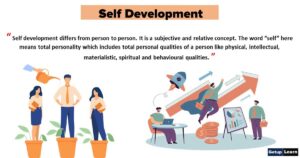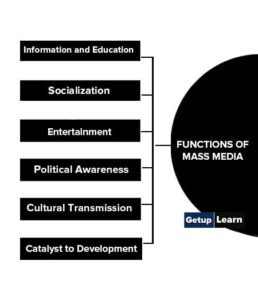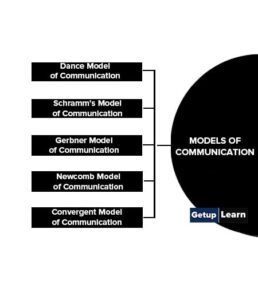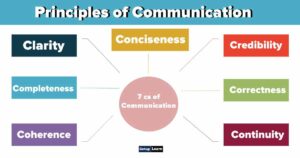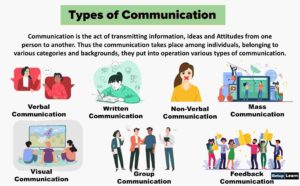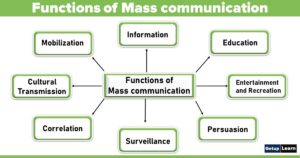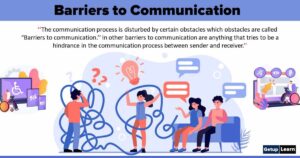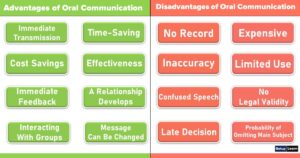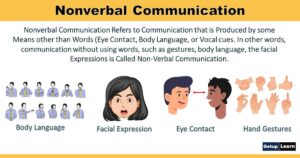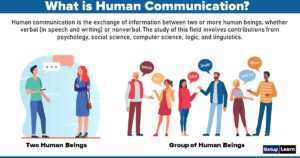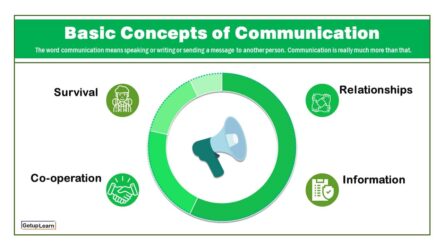Table of Contents
-
1 Ways to Overcome Barriers to Communication
- 1.1 Clarity of Ideas
- 1.2 Positive Attitude
- 1.3 Active Listening
- 1.4 Consistency of Message
- 1.5 Free Flow of Information
- 1.6 Completeness of Message
- 1.7 Environment of Mutual Confidence
- 1.8 Eliminate Noise
- 1.9 Selection of Proper Channel
- 1.10 Completeness
- 1.11 Conciseness
- 1.12 Feedback
- 1.13 Open Mind
- 1.14 Proper Use of Body Language
- 1.15 Simple Organizational Structure
- 1.16 Communication Skills
- 1.17 Flexibility
- 2 FAQ Related to Ways to Overcome Barriers to Communication
Ways to Overcome Barriers to Communication
In view of the importance of business communication, it is essential to curb the barriers to communication. Following are some of the important ways to overcome barriers to communication:
- Clarity of Ideas
- Positive Attitude
- Active Listening
- Consistency of Message
- Free Flow of Information
- Completeness of Message
- Environment of Mutual Confidence
- Eliminate Noise
- Selection of Proper Channel
- Completeness
- Conciseness
- Feedback
- Open Mind
- Proper Use of Body Language
- Simple Organizational Structure
- Communication Skills
- Flexibility
Clarity of Ideas
The sender of the message should be clear in his mind about the message that he wants to communicate. The purpose of the message and the sequence of the ideas to be conveyed should be clear in his mind. As far as possible the message should be brief and priority should be given to the language of the level of the receiver. Instead of using technical words, attempts should be made to use commonly understandable words and sentences.
Positive Attitude
There should be changes in the attitude of superiors and subordinates so that open communication is possible all the time. To achieve the organizational objective, the superiors should from time to time inform the policies and programs of concern subordinates and should also remain in touch with subordinates regarding their problems, suggestions, and emotions.
Active Listening
Active or ‘participative’ listening is as important as any other element in the process of communication. It shows that communication is a joint responsibility of both the sender and the receiver.
Consistency of Message
The information sent to the receiver should not be self-contradictory. It should be in accordance with the objectives, policies, programs, and procedures of the enterprise. Whenever a new message is to be sent in the place of the old one then changes should be described otherwise the message can be misleading.
Free Flow of Information
The system of communication should be so designed that shorter lines of information flow are there. The information can be vertically and horizontally flowed. To speed up communication proper delegation and decentralization of authority should be encouraged.
Completeness of Message
The message should be complete in every respect. The message should be sent in time; otherwise, it would lose its significance. While sending the message it should be checked that no important thing is left out, otherwise, the message can be misunderstood. Incomplete message delays work performance and increase the cost.
Environment of Mutual Confidence
Every individual working in the organization performs communication. Therefore, it can be made more effective with the help of mutual confidence with cooperation.
Eliminate Noise
Every possible effort must be made to eliminate the elements of noise that distorts communication at the transmission stage. It becomes especially important in the wake of modern technological advancement. Anything going wrong with the equipment or any disturbance in the transmission line is bound to defeat the very purpose of communication.
Selection of Proper Channel
The medium of communication is proper as far as the nature of the message and the aim of the receiver are concerned. Choosing a method thoughtfully helps to make the communication effective. Besides formal communication, it is necessary that informal communication is given due importance.
Completeness
One must also endeavor to send a complete message that furnishes all necessary facts and figures. Incomplete communication annoys the receiver a result of which proper feedback will not be possible. The message should be so organized that the receiver should not be left with any doubt related to any aspect of the message.
Conciseness
The completeness does not mean the inclusion of unnecessary details or diversions. Effective communication is concise and crisp. The sender should be clear-headed and properly focused on his vision.
Feedback
It means making efforts to know whether the receiver has properly understood the message or not. The feedback information can flow upward and downward. The reaction of the sender can be understood better in face-to-face communication. But in respect of the written or some other form of communication, the sender should adopt some appropriate method of getting feedback.
Open Mind
The parties to the communication must have open minds. The information should not be withheld for personal interest or prejudice. The information should be interpreted without any bias. The parties should be receptive to new ideas that they come across.
Proper Use of Body Language
Proper use of body language is of paramount importance, especially in oral communication. No oral communication can be successful if we do not take care of our body language. There should be proper eye contact with the person to whom we are speaking.
The movement of our hands and feet must be graceful. Every listener observes carefully how we walk and how we talk. Holding our heads straight on our shoulders shows confidence. In fact, our overall appearance can really make our communication effective.
Simple Organizational Structure
Communication can be effective when the rules and procedures in the organization are simple. There should be few levels of management so that the flow of communication moves on unimpeded.
Communication Skills
An individual should have the necessary skill to share information with superiors, subordinates, and peers. This will help in improving interpersonal relationships in the organization and finally result in greater productivity.
Flexibility
A good system should be flexible enough to adjust to the changing requirements. The new techniques should be absorbed without much resistance. Use of a wide range of media such as oral and written messages, face-to-face contacts, telephonic calls, group meetings, etc., should be encouraged without any hesitation.
Read More Related Articles
[su_spoiler title=”What is Communication? | Mass Communication” style=”fancy” icon=”plus-circle”]
What is Communication?
[/su_spoiler]
[su_spoiler title=”Types of Communication | Principles of Communication” style=”fancy” icon=”plus-circle”]
-
Types of Communication
- Verbal Communication
- Non-Verbal Communication
- Written Communication
- Visual Communication
- Feedback Communication
- Mass Communication
- Group Communication
[/su_spoiler]
[su_spoiler title=”Nonverbal Communication | Verbal Communication” style=”fancy” icon=”plus-circle”]
[/su_spoiler]
[su_spoiler title=”Written Communication | Oral Communication” style=”fancy” icon=”plus-circle”]
Written Communication
[/su_spoiler]
[su_spoiler title=”Business Communication | Organizational Communication” style=”fancy” icon=”plus-circle”]
Business Communication
[/su_spoiler]
[su_spoiler title=”Formal Communication | Informal Communication” style=”fancy” icon=”plus-circle”]
[/su_spoiler]
[su_spoiler title=”Interpersonal Communication | Informal Communication” style=”fancy” icon=”plus-circle”]
[/su_spoiler]
[su_spoiler title=”Downward Communication | Upward Communication” style=”fancy” icon=”plus-circle”]
[/su_spoiler]
[su_spoiler title=”Barriers to Communication | Horizontal or Lateral Communication” style=”fancy” icon=”plus-circle”]
Barriers to Communication
[/su_spoiler]
[su_spoiler title=”Self Development | Effective Communication” style=”fancy” icon=”plus-circle”]
[/su_spoiler]
[su_spoiler title=”Difference Between Oral and Written Communication | Theories of Communication” style=”fancy” icon=”plus-circle”]
[/su_spoiler]
What are the ways to overcome barriers to communication?
Following are the ways to overcome barriers to communication:
1. Clarity of Ideas
2. Positive Attitude
3. Active Listening
4. Consistency of Message
5. Free Flow of Information
6. Completeness of Message
7. Environment of Mutual Confidence
8. Eliminate Noise
9. Selection of Proper Channel
10. Completeness
11. Conciseness
12. Feedback
13. Open Mind
14. Proper Use of Body Language
15. Simple Organizational Structure
16. Communication Skills
17. Flexibility.



